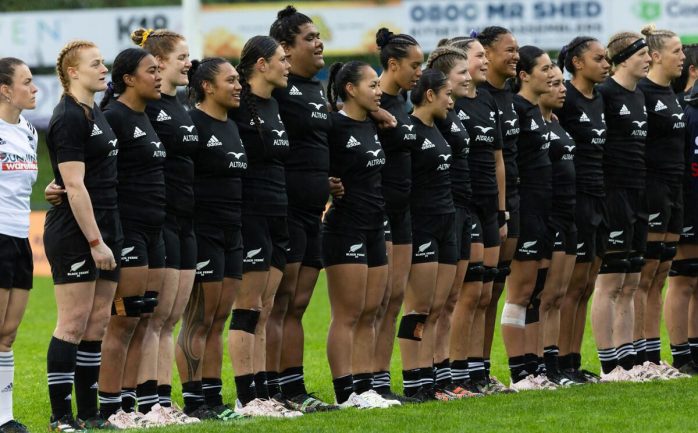Hannah Porter, head of New Zealand High Performance, has outlined an enhanced programme for the Black Ferns and women’s rugby in general.
It falls into two parts:
The first comes as a result of World Rugby’s efforts to increase engagement at test level for nations lacking regular high-quality rugby.
This means essentially the new WXV Global Series, which will offer NZ six matches per year.
Add to that the regular Pacific Four series; and the Black Ferns will enjoy ten tests in 2026.
Second, at domestic level, Porter mentions more matches for a “Black Ferns XV”, a sort of “B” or development side. They will play two matches against South Africa and a full BF side, as last year.
Below them the focus is on developing the junior levels, U18 and U20. Alongside extended training sessions, extra internal matches will be laid on.
One stage further: staff will arrange four regional sessions for newcomers to the game.
Almost inevitably, extra pathways will be established for prospective 7s players. Porter gives no indication of any priority between the two formats; but one focus of Kiwi criticism has been on this point. Can NZ rugby really afford to continue aiming for the top of both trees?
The present assumption must be: Yes, most certainly.
Another long-standing concern has been the brevity of the two main competitions, Super Aupiki (essentially professional) and the Farah Palmer Cup (amateur).
The Aupiki will remain restricted to six matches and a final. The one big change is in timing: it takes place much later in the year.
The emphasis of the FPC will be firmly on development.
Porter speaks of hopes to extend both tournaments, but reveals no precise details.
Some Background
For every Kiwi a third place at the recent RWC represented failure, a loss of standing on the world stage. Typically, steps have been taken to correct perceived shortcomings.
The long-term target in the 2029 RWC in Australia. The venue alone raises Kiwi chances, but even the best laid plans can go astray.
Above all NZR must ensure that rugby union retains its place as the nation’s favourite sport. That is no longer a given.
Even the current All Blacks are the target of widespread criticism, and the Black Ferns are still struggling to extend their fanbase. The attendances at the 2021-22 RWC were a worrying indication.
In particular the defeat by Canada in the Bristol semi-final was a harsh wake-up call.
We await news of a post-tournament review. Local opinion is divided: on the one hand Allan Bunting is seen as having made the best he could of limited talent, specifically in the pack. On the other he is castigated for his selections, while his coaching staff is seen as failing in its prime duties.
There is hard work ahead, but at least fans will be able to follow their favourites far more frequently at home grounds or on TV.









